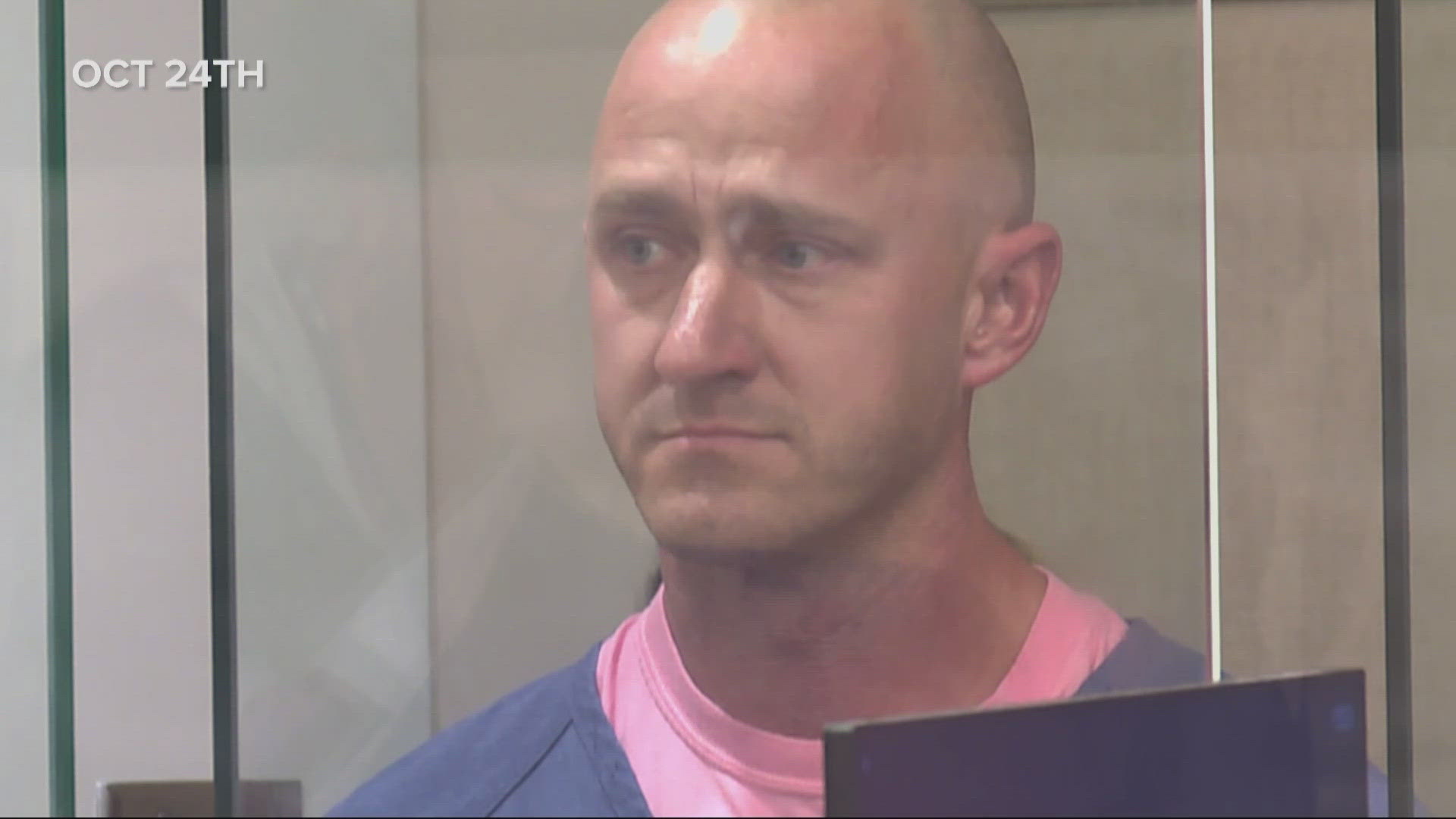PORTLAND, Ore. — A new documentary is highlighting the questions raised about pilot mental health through the case of Joseph Emerson, the former off-duty Alaska Airlines pilot who allegedly tried to cut the plane's engines midflight last October, causing the flight to be diverted to the Portland International Airport.
"The New York Times Presents: Lie to Fly" centers around Emerson and last year's incident, in which a Horizon Air-operated flight departing from Everett, Washington, was heading to San Francisco, California, on Oct. 22 when it reported a "credible security threat related to an authorized occupant in the flight deck jump seat," said Alaska Airlines at the time.
The suspect, Emerson, then attempted to deploy the engine fire suppressions system, which would have caused the engines to shut down. Two pilots were able to subdue him, and the flight was diverted to PDX; the Port of Portland arrested Emerson upon landing.
Emerson later pleaded not guilty to reduced charges of reckless endangerment — previously, attempted murder charges — as well as a federal charge of interfering with a flight crew. He faces a trial this fall and was released from jail until then.
In the teaser, experts and Emerson question the current state of the airline industry and its "culture of concealment." The FX documentary premieres Friday at 10 p.m., streaming on Hulu.
Pilot mental health
In the teaser, Emerson says that if he had been on anti-depressants, "I would immediately not be able to fly airplanes."
It highlights an open secret in the airline industry: If seeing a therapist produces a mental health diagnosis, that diagnosis can result in a pilot being grounded — at least temporarily losing their livelihood. Thus, aviators are less likely to seek help when they need it, producing a chilling effect.
After the incident, the Federal Aviation Administration (FAA) stated that they were taking steps to rethink how the industry handles mental health care, including establishing a Pilot Mental Health Aviation Rulemaking Committee to provide recommendations on ways the agency can break down the barriers that might prevent pilots from reporting mental health issues.
The subject was raised in a class-action lawsuit, filed by passengers onboard the flight. The lawsuit lambasted Alaska Airlines and Horizon Air for an alleged lack of rigorous screening and standards for pilots and those in the jump seat — but also cited concerns of "pervasive mental illness" among pilots.
The suit argued that Emerson's "self-described weeks-long struggle with mental health," as well as his lack of sleep and use of drugs, should have been known to the airline.
Inside the flight
"I remember having this feeling, like, 'Am I alive?'" Emerson says in the teaser.
"... I grabbed the only two things that are in my eyesight that I think are going to wake me up: shut-off handles," he recalls, with a heavy sigh, closing his eyes.
According to court documents, when the plane was halfway between Astoria and Portland, Emerson declared, "I'm not okay," throwing his headset across the cockpit and attempting to pull the two red handles that would activate the fire suppression system.
Alaska Airlines said that gate agents and the flight crew did not notice any signs of impairment that would have prevented Emerson from getting on the plane. He had also passed all of his mandated FAA medical certifications. According to the Cockpit Access Security System (CASS), which determines who can sit in a jump seat, Emerson was eligible to be there as a current Alaska Airlines captain. (Alaska Airlines has since relieved him of all duties.)
Though Emerson told police he had taken psychedelic mushrooms for the first time several days prior, Emerson gave no indication that anything was wrong during the first half of the flight, according to a probable cause affidavit. Emerson's attorney has stated that the pilot wasn't under the influence of any intoxicants on the plane.

